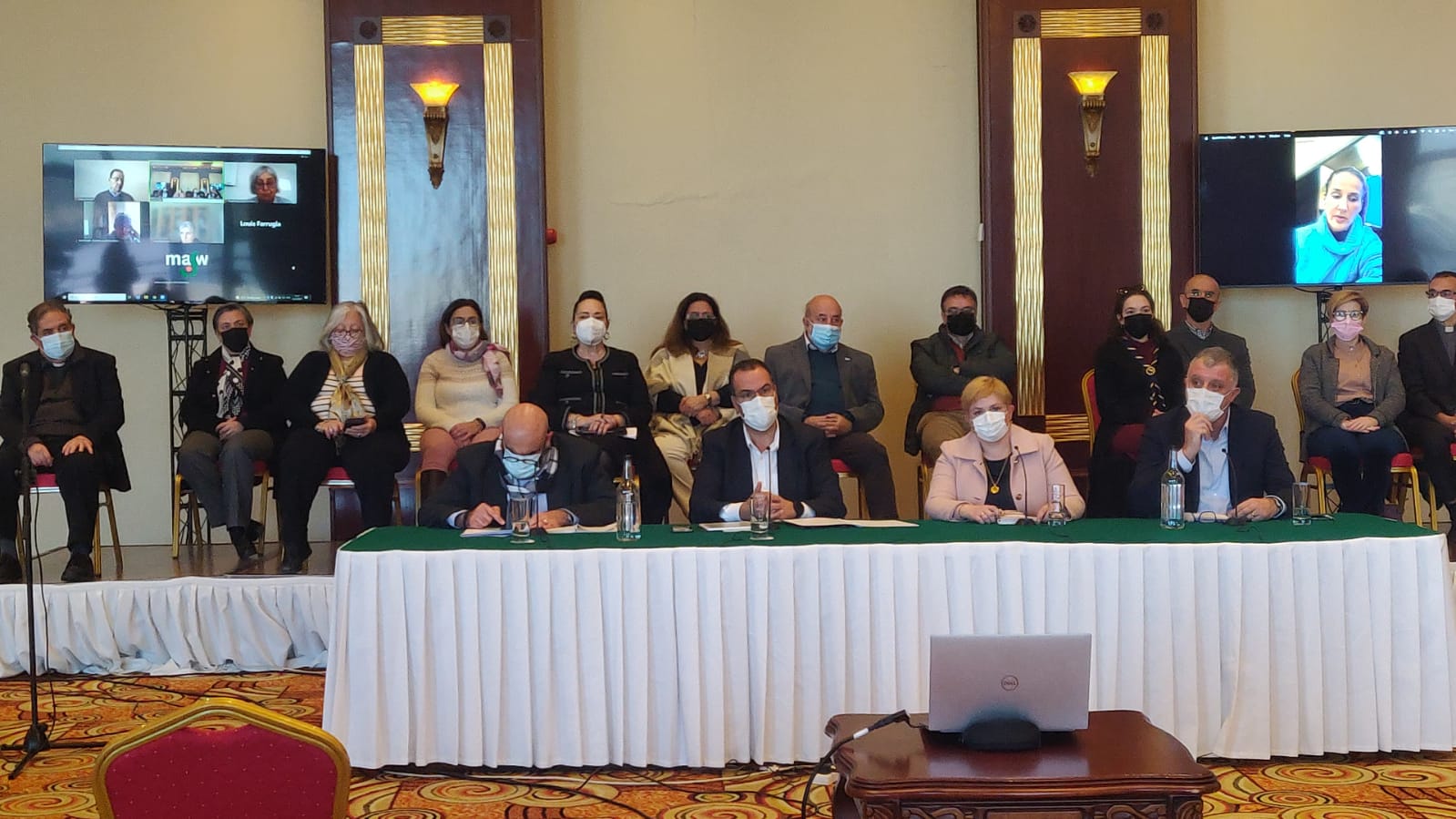
The proposed law on recreational cannabis does not signify progressive legislation, Dr Aloisia Camillieri, a psychiatrist, said on Sunday, as she underlined that the bill would inflict more harm on society once enacted.
Representing the Maltese Association of Psychiatry, Camilleri addressed a press conference organised by 57 organisations consisting of Church organisations, NGOs, and lobby groups, that have recently filed a petition to parliament, in a last-ditch attempt to stop a bill aimed at legalising recreational cannabis.
As she reiterated the proposals put forward by the association, Camilleri highlighted that the human brain is still developing until the age of 21, and studies have clearly shown that cannabis use through adolescence causes permanent harm on the human brain. She explained that frequent use and high THC – the main psychoactive compound in marijuana – content exacerbate matters.
She noted that the draft bill does not include any provisions which would regulate the THC content.
Some two to three people are admitted to Mount Carmel Hospital with issues relating to the use of cannabis, Dr Camilleri highlighted, as she warned that the legalisation of cannabis could not only lead to dependence and act as a getaway drug, but could also overwhelm a mental health service which is already stretched.
“What will this law cost us?” Dr Camilleri asked, in reference to whether any costing has been carried out in relation the harm such a law would inflict on society.
She underlined that adolescents and adults should be given alternative recreational options without resorting to cannabis.
The psychiatrist also warned that by legalising cannabis, the black market would not be eradicated but would simply adapt to the new situation.
The amendments are aimed at containing the potential harm – Caritas Director
Caritas director Anthony Gatt stressed that the organisation, which offers drug rehabilitation services, was not against decriminalisation of cannabis, and reiterated that no one should go to jail over a joint.
He explained that the organisations were putting forward six main proposals which should be added to the law aimed at reducing potential harm of the proposed law.
Gatt warned that if enforcement does not work, the law would fail, as he urged for fines to be doubled for those caught smoking in public or in the presence of children.
An inherent contradiction – Fondazzjoni OASI
Noel Xerri from Fondazzjoni OASI highlighted that the draft law contradicts itself when it sets up a regulatory authority but at the same time has to carry out campaigns on responsible use.
“You cannot regulate and promote responsible use,” he said. Xerri maintained that the bill, which is purportedly aimed at harm reduction, does not reduce harm when the legislator provides for the whole society instead of addressing the situation among a cohort of people who are evidently at risk.
“The government should provide alternative recreational outlets which do not inflict harm on society in the long run,” he said.
Government has been hijacked by a single entity – Cachia
The government has been hijacked by a single organisation, ReLeaf, Stephen Cachia from the Church Schools’ Association charged.
He noted that the feedback and recommendations submitted by the organisation had been ignored, and added that the proposed legislation was a “weak framework” when it came to protect the most vulnerable.
Cachia underlined that the distance from schools should be increased to 1 kilometre highlighting that a young adult attending university, MCAST, or ITS could easily procure cannabis on foot if the distance remains 250m.
It’s not just a handful of church organisations – Fr Jimmy Bartolo
Fr Jimmy Bartolo, rector at St Aloysius College observed that the coalition of organisations was made up of different entities coming from different walks of life.
“We’re not a handful of Church organisations!” Fr Bartolo exclaimed, in contrast to claims made by Innovation Minister Owen Bonnici, who allegedly that the opposition to the proposed bill was coming from Church organisations.
Quoting Pope Francis, Fr Bartolo warned that the erosion of the democratic process leads to totalitarianism.
Joe Farrugia – Malta Employers’ Association
‘Close the petition on Sunday‘
The signatories of the petition calling for amendments to the contentious cannabis reform law have called on legislators to discuss the demands urgently, before the law is rubber-stamped by legislators on Tuesday.
On Friday, Petitions Committee chairperson Joe Mizzi dismissed calls for an urgent debate and said the petition calling for changes to the proposed cannabis Bill will be discussed in February as per committee rules.
However in a letter sent to Mizzi and Speaker Anġlu Farrugia, the signatories demanded that the petition closes on 12 December at 11.30pm, in accordance with parliamentary guidelines.
“We also ask that the Petitions Committee convenes as soon as possible to discuss this petition before the final vote is taken in the Chamber of Deputies, in accordance with guideline 7.1,” the letter says.
To date, the petition has been signed by 57 organisations and over 8,000 individuals and the signatories said “we are very concerned that not a single amendment proposed by numerous civil entities was accepted at the second phase of the Parliamentary process.”
The letter adds that diverse social groups, NGOs who have extensive professional experience in the prevention of drug abuse, psychiatrists, pharmacists, doctors, social workers, The Children’s Commissioner, President Emeritus Marie-Louise Coleiro Preca, and many other organisations and academics “have expressed grave concerns about the negative effects of this law.”
The cannabis reform Bill cleared the committee stage on Tuesday, with no major amendments approved during four-hour session.
The draft law is now expected to go through the Third Reading in parliament on Tuesday 14 December, which is a mere formality given government’s majority, before being signed into law by President George Vella.
Source: Newsbook.com.mt





